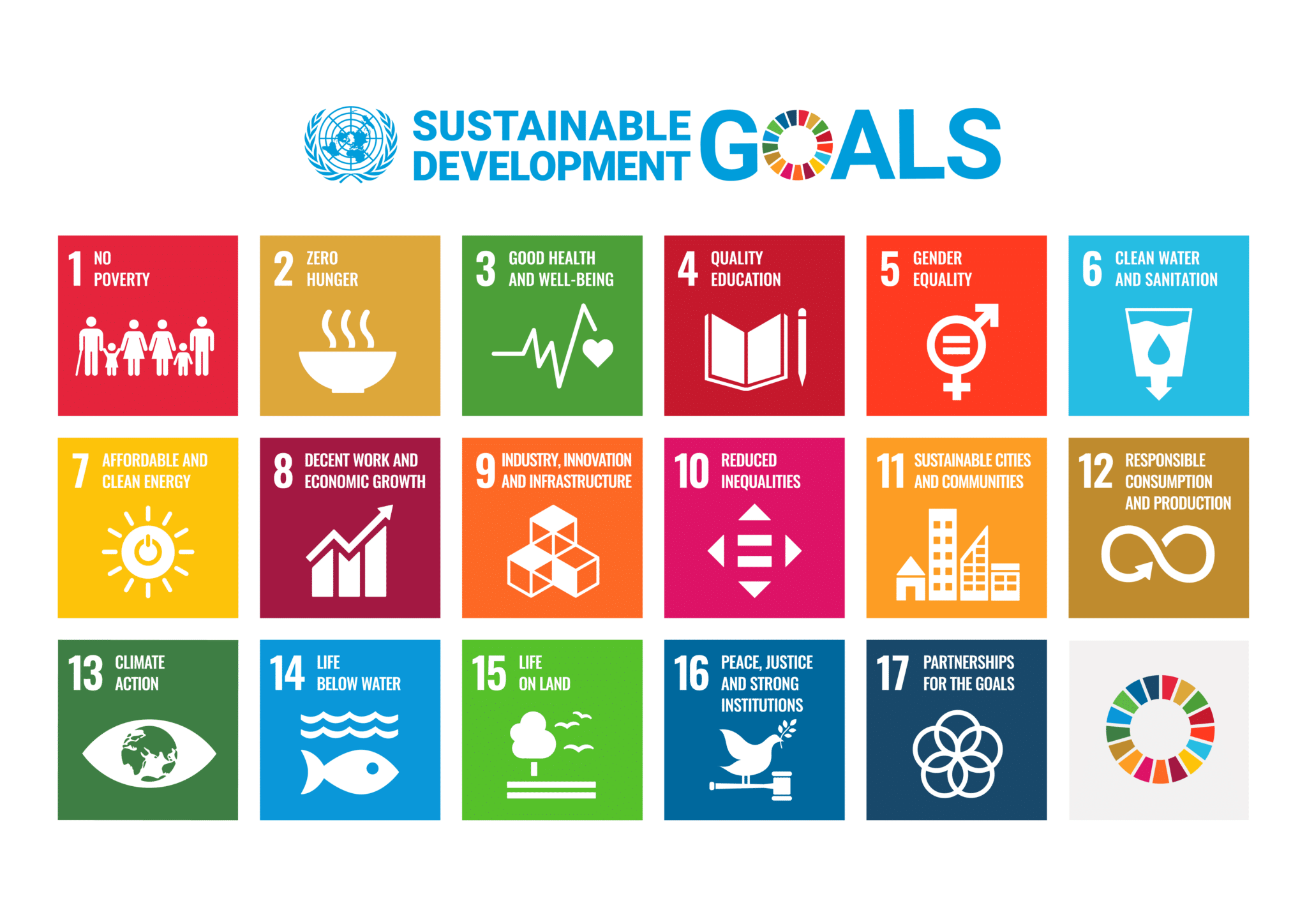What are the Sustainable Development Goals?
The SDGs are based on the Millennium Development Goals (MDGs), which were in place from 2000 to 2015. While the MDGs focused primarily on poverty, health, and education, the SDGs take a more holistic approach to development. The 17 goals are as follows:
1. No Poverty: End poverty in all its forms everywhere.
2. Zero Hunger: End hunger, achieve food security and improved nutrition, and promote sustainable agriculture.
3. Good Health and Well-being: Ensure healthy lives and promote well-being for all at all ages.
4. Quality Education: Ensure inclusive and equitable quality education and promote lifelong learning opportunities for all.
5. Gender Equality: Achieve gender equality and empower all women and girls.
6. Clean Water and Sanitation: Ensure availability and sustainable management of water and sanitation for all.
7. Affordable and Clean Energy: Ensure access to affordable, reliable, sustainable, and modern energy for all.
8. Decent Work and Economic Growth: Promote sustained, inclusive, and sustainable economic growth, full and productive employment, and decent work for all.
9. Industry, Innovation, and Infrastructure: Build resilient infrastructure, promote inclusive and sustainable industrialisation, and foster innovation.
10. Reduced Inequality: Reduce inequality within and among countries.
11. Sustainable Cities and Communities: Make cities and human settlements inclusive, safe, resilient, and sustainable.
12. Responsible Consumption and Production: Ensure sustainable consumption and production patterns.
13. Climate Action: Take urgent action to combat climate change and its impacts.
14. Life Below Water: Conserve and sustainably use the oceans, seas, and marine resources.
15. Life on Land: Protect, restore, and promote the sustainable use of terrestrial ecosystems, manage forests sustainably, combat desertification, and halt biodiversity loss.
16. Peace, Justice, and Strong Institutions: Promote peaceful and inclusive societies, provide access to justice for all, and build effective, accountable institutions.
17. Partnerships for the Goals: Strengthen global partnerships to support and achieve the SDGs.
The importance of the SDGs
The SDGs represent a global consensus on the most critical issues facing humanity and the planet. Unlike previous international goals, the SDGs are universal, meaning they apply to all countries –whether rich or poor, developed or developing. This reflects the understanding that global challenges like climate change, inequality, and resource depletion require coordinated efforts from all nations.
The role of businesses in achieving the SDGs
While governments are primarily responsible for implementing the SDGs, businesses play a critical role in achieving them. Companies across industries are recognising the value of aligning their operations and strategies with the SDGs. This not only helps contribute to global sustainability but also opens up new business opportunities, improves risk management, and enhances long-term profitability.
For example, SCHOTTEL Marine Technologies is contributing to SDG 7 (Affordable and Clean Energy), SDG 13 (Climate Action) and SDG 14 (Life Below Water) by developing environmentally conscious anchoring solutions for the global offshore energy industry. Through innovation and commitment to environmental stewardship, businesses like SCHOTTEL Marine Technologies are helping to reduce carbon emissions and combat climate change, all while advancing sustainable economic growth (SDG 8).
Collaboration, creativity, and commitment required
The Sustainable Development Goals provide a comprehensive framework for addressing the world’s most urgent challenges. By setting clear targets across a wide range of social, environmental, and economic issues, the SDGs offer a roadmap for a more sustainable and equitable future.
For companies like SCHOTTEL Marine Technologies, contributing to the SDGs is not just about corporate responsibility collaboration, creativity, and commitment – it’s about innovation, long-term growth, and ensuring that future generations can thrive. Achieving the SDGs requires collaboration, creativity, and commitment from all of us. As we work towards 2030, the SDGs remind us that sustainability is a shared responsibility.
